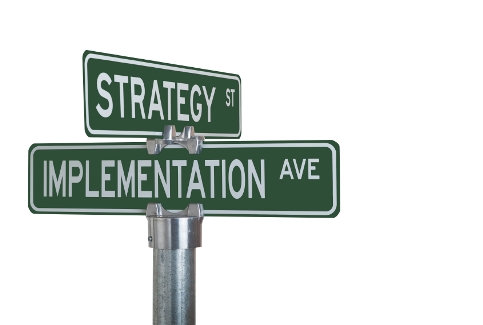Exceptional learning experiences … building your event roadmap

Where art and science intersect
Creating an exceptional learning experience through corporate meetings is a process. It’s where someone isn’t told what to learn, but rather led to discover it for themselves. This is a journey that develops into a personal experience for each attendee.
It’s safe to say that we share a common goal throughout our event planning efforts: Deliver a meaningful experience that informs, inspires, and motivates attendees into action in some way. I refer to this as “esprit de corps”, or developing good will among a group while providing direction and belief toward a broader purpose. Doing this through events requires conscientious planning. It also requires you to create a specific road map in order to deliver an exceptional learning experience that serves not only your immediate event needs, but also your broader corporate culture, communication, and learning needs. This combined goal involves some “art and science thinking” on your part which I’ll use this newsletter to explore a bit.
Creating an exceptional learning experience through events requires reaching attendees down to the individual level in a meaningful way. It means reaching them through the immediate “aha” and “wow” factor, and also digging more deeply into the “why/how” factor through your event design and content. Here are considerations to help you pause and evaluate the art and science components of your own event planning efforts.
The Art …
The art of event planning adds creative touches and finesse to your event’s broader visual and structural elements that engage and draw participants in from the start. Among its many factors include: Knowing your attendees and participants, event goals, theme, location, music, and use of technology. Collectively, these elements help set the ambiance, the roadmap for that exceptional learning experience you’re striving to create along with several broader considerations.
- What do I know about the learning habits of attendees – Baby boomers, Gen X’ers and millenials?
- How can I include their feedback into event design and content?
- How might this event reinforce key information as well as broader corporate messages?
- What resources do I need and trust to accomplish this?
The Science …
The science of event planning caters a bit more deeply to organizational dynamics and individual behaviors, or “the cognitive planning behind your event planning”.
At a recent MPI event I attended, Dick and Emily Axelrod framed this thinking as “Connection before Content”. The presentation explored how specific neuroscience concepts can have real impact on your meeting design planning to optimize event engagement levels down to the individual level; that these concepts will “activate” the collaborative and innovative areas of the brain, leaving participants feeling comfortable, connected throughout the experience, and feeling more invested afterward.
These neuroscience concepts are posed here from the attendee’s perspective:
- Status – Am I important to others? How will I fit with other attendees and participants at this event?
- Certainty – How will the flow of information – before, during, after – enhance my experience at this event?
- Autonomy – What flexibility and freedom will I have logistically?
- Relatedness – Will my leaders use this event to show their empathy for my best interests and my future?
- Fairness – Will this event show me I’m being treated inclusively and fairly?
The intersection …
The intersection becomes a combination of these two elements and where you, the event planner, play a vital role as the bridge through pre-production work. You serve as the intersection between art and science, between event planning and the flow of messages and information towards a more effective learning organization. It’s all of these considerations which, combined with your “think and link” knowledge, will help you deliver an exceptional learning experience.
This also means that you need to be engaged and prepared to drive this process by asking yourself similar questions:
- What energizes and inspires me? How can I build this into my day?
- How can I improve my relationships with others across my organization for more proactive, collaborative thinking?
- What roadblocks prevent me from delivering an exceptional learning experience through events? How can I change this?
All of these considerations can gradually make you a better event planner, a better communicator, and a better business partner over time. They’ll guide your approach to help you deliver a more meaningful, exceptional learning experience through corporate events, an intersection of art and science.
